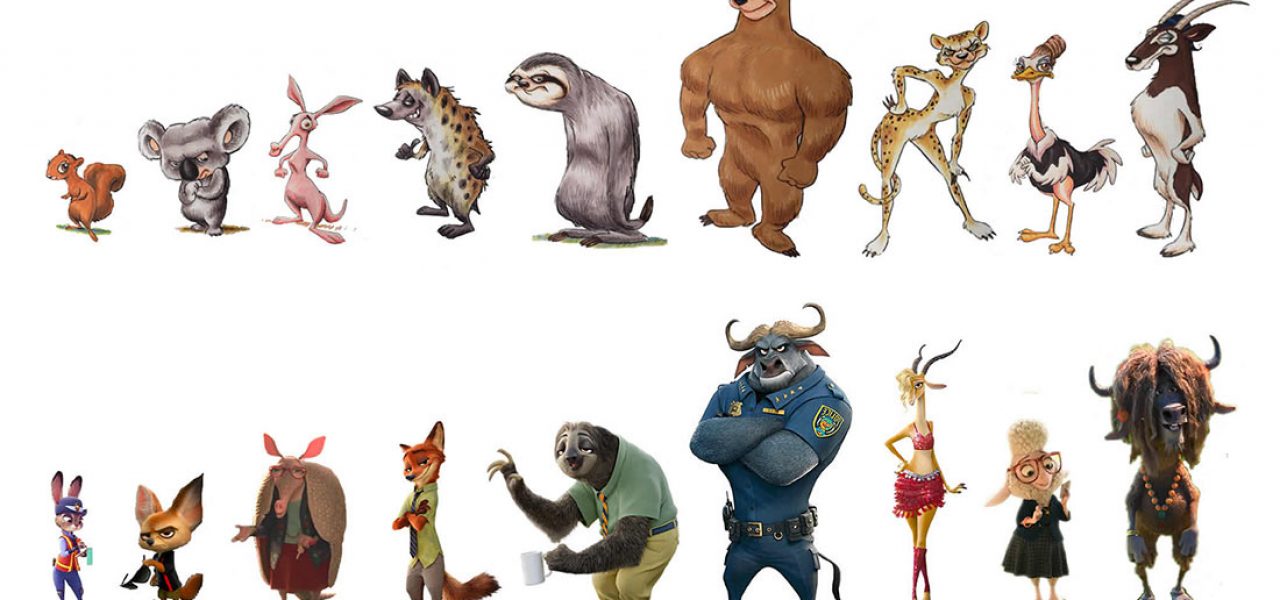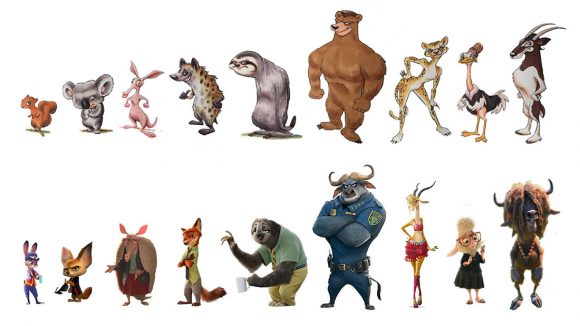

Disney Slammed With ‘Zootopia’ Theft Lawsuit by ‘Total Recall’ Screenwriter
Gary Goldman, an established screenwriter with credits that include Total Recall and Big Trouble in Little China, filed a lawsuit in federal court this week against The Walt Disney Company, alleging the studio’s 2016 hit Zootopia was based on his own project, also titled Zootopia.
Goldman (not to be confused with Don Bluth’s business partner, who is also named Gary Goldman) claims that in 2000 he wrote a treatment about “an animated cartoon world that metaphorically explores life in America through…anthropomorphic animals.” He registered the treatment with the Writer’s Guild and hired an artist to create illustrations of various characters for his project.
Goldman also pitched his Zootopia to David Hoberman, a producer and former Disney studio executive. At the time, Hoberman passed on the project.
In 2009, Goldman was working with Disney executive Brigham Taylor on a project called Blaze. By that time, Goldman had further developed his Zootopia project and pitched Taylor on his idea. Goldman gave Taylor copies of his character descriptions, illustrations, and treatment, and Taylor said he would approach the studio’s animation departments to review the project.
According to Goldman, shortly thereafter, Disney put into development its own Zootopia project, but did not compensate Goldman for any of his work.
To prove a copyright claim, a plaintiff must show ownership of the work claimed to be infringed upon, substantial similarity between the protected work and the infringing work, and that the defendant had access to the protected work. The guild registration could prove ownership, and the pitches to Hoberman and Taylor could prove access. Most copyright cases, though, hinge on whether works are “substantially similar.”
Goldman claims that both the “Goldman Zootopia” and the “Disney Zootopia” address the themes of prejudice, self-definition, and whether individual goals can be obtained in a diverse society, using the metaphor of diverse species.

According to the lawsuit, both works depict a setting characterized by anthropomorphic animals in a place referred to as “Zootopia,” with each species having their own neighborhood, with the animal characters going to work in the day and coming home at night, with social class based on “the animals’ characteristics such as the nature of their species.” Both works are set in “human-like physical environments,” rather than more naturalistic settings such as the jungle or forest, and feature clubs, schools, workplaces, and asylums.
The complaint compares the various characters and alleges similarities in the designs and personalities. Goldman also argues that both plots “involve a small, cute, furry female animal who is an outsider,” and that conflicts among characters are similar, as are the sequence of events, the mood and pace, and of course the title.
However, there are differences as well. For example, in Goldman’s Zootopia, the anthropomorphic cartoon animal world is created by a human animator. Goldman’s Zootopia does not have a rabbit as its main star; the lawsuit compares Judy in Disney’s version to a squirrel in Goldman’s version, but there is no indication of what role that squirrel plays in the story. And though Goldman says that he came up with Zootopia and describes it as a Zootopia franchise, the actual name of his film was Looney.
In the complaint, Goldman alleges that Disney has a “corporate practice” of appropriating the intellectual property of others without authorization, and citing alleged copy by The Lion King of Osamu Tezuka’s classic Kimba the White Lion (the Kimba rights holders declined to pursue any claim); by Pixar’s Toy Story of Jim Henson’s The Christmas Toy; by Pixar’s Monsters, Inc. of Stanley Mouse’s Wise G’Eye (Mouse sued Disney in 2002 claiming infringement); by Pixar’s Up of Yannick Banchereau’s Above Then Beyond; by Pixar’s Inside Out of Frédéric Mayer’s and Cédric Jeanne’s Cortex Academy, and, as covered by Cartoon Brew previously, by the Frozen trailer of Kelly Wilson’s animated short film, The Snowman (Disney settled with Wilson).
The complaint even quotes Zootopia director Byron Howard: “Don’t worry if you feel like you’re copying something, because if it comes through you, it’s going to filter through you and you’re going to bring your own unique perspective to it.”
In a statement, as reported by multiple outlets, Disney denied Goldman’s “patently false” allegations. “It is an unprincipled attempt to lay claim to a successful film he didn’t create, and we will vigorously defend against it in court,” a Disney spokesperson said.
Goldman is seeking an accounting of all profits derived from Zootopia and unspecified damages, including punitive, as a result of what he calls Disney’s “wanton, deliberate, malicious, and willful misconduct.”

.png)